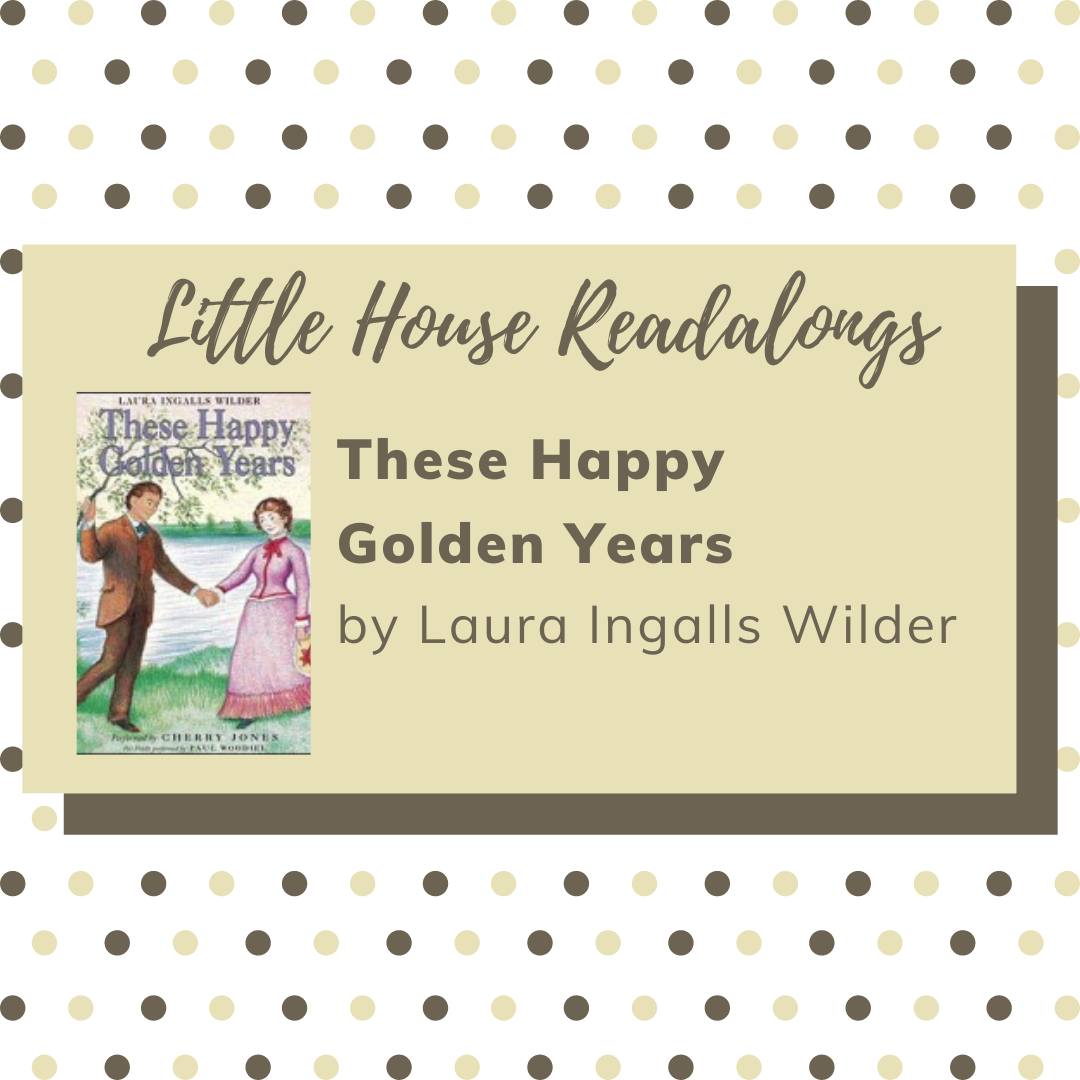
Guest post by Kate
Has there been a chapter in the entire series more full of unblemished
happiness than this one? Laura has made it home from the bare McKee
claim. The Ingalls homestead is thriving, with a vegetable garden,
milk cows, a huge flock of chickens, and more kittens than (now
Grandma!) Kitty knows what to do with.
Then Mary makes her grand entrance after traveling home alone by
train, her first visit from college. She moves confidently around the
house! She doles out beaded gifts she made herself! She tells
stories of playing pranks on unsuspecting store clerks? Who is
this girl and what has she done with the prim girl sitting unrumpled
on the wagon seat? She also shares that she is able to read and write
in Braille, recognizing old Bible verses Ma had her memorize as a girl
and mailing letters to friends and teachers. Surely all the family
must feel as Laura felt: “All that it had cost to send Mary to college
was more than repaid by seeing her so gay and confident.”
After years of want and scrimping, the Ingalls family seems to be
living a life of luxury. Fresh milk, butter, eggs! Am I the only one
salivating over Mary’s welcome home dinner: “It was a happy family,
all together again, as they ate of the browned hashed potatoes,
poached fresh eggs and delicious biscuits with Ma’s good butter. Pa
and Ma drank their fragrant tea, but Mary drank milk with the other
girls.” Not two winters ago this same family nearly starved to death,
so it’s great to see them feasting so richly. Surely this is the
beginning of a wonderful summer!

Comments7
It does make you wonder how Mary’s personality would have been different had she not gone blind. It seems there was one under there, after all, just waiting to be released! Playing tricks on clerks…who woulda thunk it?
I just realized how close a “great” meal is to a Hard Winter Meal.
Summer & good – browned hashed potatoes,
poached fresh eggs and delicious biscuits with Ma’s good butter and tea or milk to drink.
Winter & bad – potatoes (baked?) and brown wheat bread with maybe a little butter from the Boasts and tea or water to drink.
The eggs made all the difference. Eggs (if you didn’t have chickens) were very expensive and (if you did have chickens) very seasonal.
I remember reading a compliment paid to Mrs. Wilder by a Missouri neighbor: “She gets eggs in the winter when none of her neighbors gets them.” (I think it was in the Donald Zochert bio) Apparently it has a lot to do with your skill in caring for your hens, too,
I’ve often thought about Mary’s comment that ‘we don’t have such good milk at college’. I wonder where the school got its milk. It was probably bought from a wholesaler in Vinton, or even in Des Moines, (not direct from the farm) which probably means it was not very fresh, watered down .. and at considerable risk for carrying TB and whatever germs were in the water supply. So milk fresh from the cow would have been a treat indeed.
Also thinking back to LTotP, Pa mentioned that the school had said that Mary could send home her beadwork if they sent money for her to buy the beads. So Pa paid for beads used in their lovely gifts? And more important, what happens to all the beadwork she made that she DIDN’T bring home? Perhaps it was sold to help support the school?
And how did Grace’s doll chair not get crushed in the trunk? (Presumably it was in the till, but the Garth Williams illustration shows it just sitting in amongst her clothes.)
Even fresh milk from the farm had its dangers. My husband caught TB from raw milk prescribed by a doctor, In 1957.
He was severely underweight and this was to help him gain weight. Instead it almost killed him. The current raw milk movement gives me the heebie jeebies for this reason.
Oh, certainly raw milk wasn’t entirely safe back then either. But you were much less likely to get sick (TB or otherwise) from the milk of one cow, kept out in a sunny field, than from commercial milk collected from dozens of cows, most of whom spent most of their lives crammed together in a cramped urban stable.
Comments are closed.